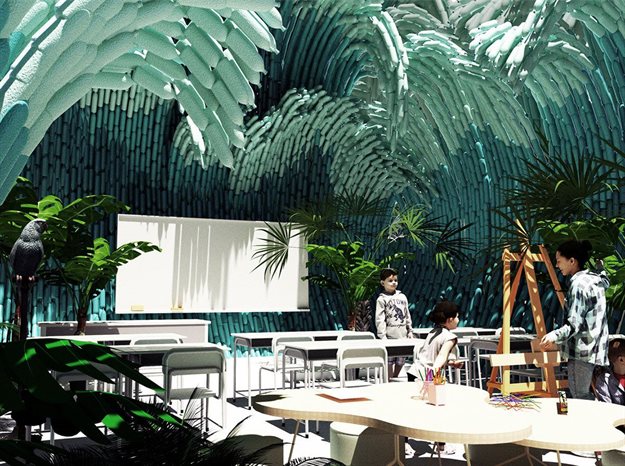Architects use plastic bottles to design ocean wave façade system

The design, proposed for the façade of an art school in Tulum, will create expressive waves which are meant to raise curiosity and offer an inspiring environment for the kids to thrive in, but it is also a reminder of where these bottles were taken from.
"With this building, we want to set a precedent on what can be done with recycled plastic bottles, an action that hopefully could inspire other people and communities," said the studio.
"A simple and economic wall system will make this possible; painted bottles in a colour gradient pierced through bent rebar."

The system is made out of plastic bottles that are pierced through rebar erected in a concrete trench, looking almost like a tall fence at its first stage. Plastic bottles with drilled holes in the bottom are pierced on each rebar, and then the rebar are bent into a desired position, forming waves.
Each reinforced unit can accommodate an extra layer of bottles on each side, closing the wave. The bottles close to the ground are filled with cement or sand to ensure stability and each rebar is also attached to a wall or a slab in mid-air.

The bottles are painted in a gradient of blue-cyan-white colour. The waves are also more than a great backdrop, they are also giving shelter from rain and the sun, and at some places, they can also be used for seating and tables.
Original article published on World Architecture Community.